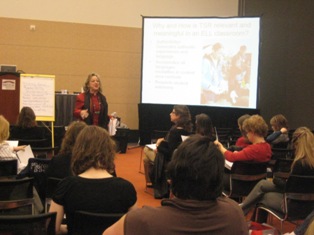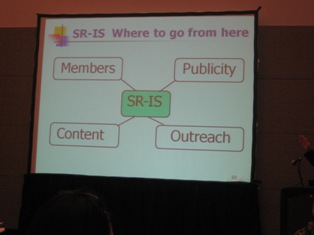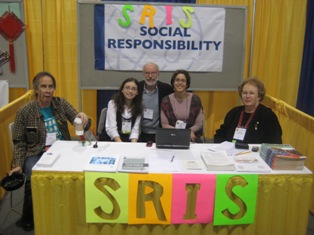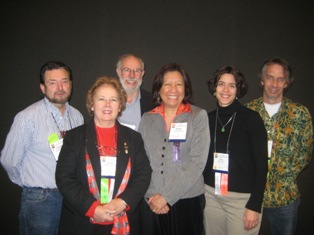|
Since I began teaching several decades ago, behavior in the
classroom has become a reflection of societal attitudes in general.
Conflict resolution, whether from a class bully or parent-teacher
issues, was becoming a lost art. Lack of self-esteem, respect for
others—from classmates to the police officer in the street—and respect
for individual differences threatened to disrupt the learning process at
every stage, from kindergarten to middle-aged adults. This trend was
obvious not just in the United States but worldwide, so that in the
Middle East, where I live and work, educators became alarmed and began
discussions, seminars, and workshops to develop classroom materials
through which we might again create a social conscience in students.
It was rewarding, therefore, when our local group in Egypt
discovered we were not alone. Friends in TESOL (after the 2000
convention) brought us the news that a forum existed through which we
could gather and share ideas, solutions, methodologies, and resource
materials to apply to our local situations. That informal caucus, first
called Teachers for Social Responsibility, comprised an amazing group of
educators from all over the world. They worked diligently and
energetically to gather more forces into the group until it finally
became, in 2009, an official interest section.
With access now to TESOL’s vast contact network, opportunities
for professional development, and up-to-date professional news—not to
mention the ever-expanding Resource Center—the Social Responsibility
Interest Section is becoming an important link among the many other
interest sections. Indeed, there has been much discussion of the fact
that the very idea of social responsibility is
already incorporated into most interest groups.
The SRIS continues to welcome all suggestions, comments, and
guidance as to what is happening worldwide to create the citizens of
tomorrow. One look at sessions held at the TESOL conventions in the past
3 years, and those planned for this year in Dallas, clearly
demonstrates the amazing activities that are happening in classrooms
from Idaho to India and from Cincinnati to Cairo! Send the newsletter
editors and the Resource Center any materials you may have developed to
share with other educators; let us know what is going on in your “neck
of the woods”; let us be a part of the good work we know you are all
doing.

Dr. Catherine Frazier presenting SR-related topic in Boston

SR was a new IS and in Boston and we considered "Where to go from here?"

Friends gather at the SRIS
booth in Boston. In picture (from left to right): Rob Clement, Tracy
Alexander, Kip Cates, Amy Hamar, Earlene Gentry.

SRIS Presentation Group. In
picture (back row, from left to right): Tom Schroder, Kip Cates, Rob
Clement; (front row from left to right): Earlene Gentry, Shelley Wong, Amy
Hamar
Earlene Gentry, past Chair of SRIS (2010-2012) taught ESL as well as content courses in Egypt for 25+ years before joining the Fulbright Commission. After retiring from that, she has remained active as a volunteer, mentoring teachers and helping them with developing resource materials. She is also a free-lance writer and editor for a few trade journals in the region.
|

